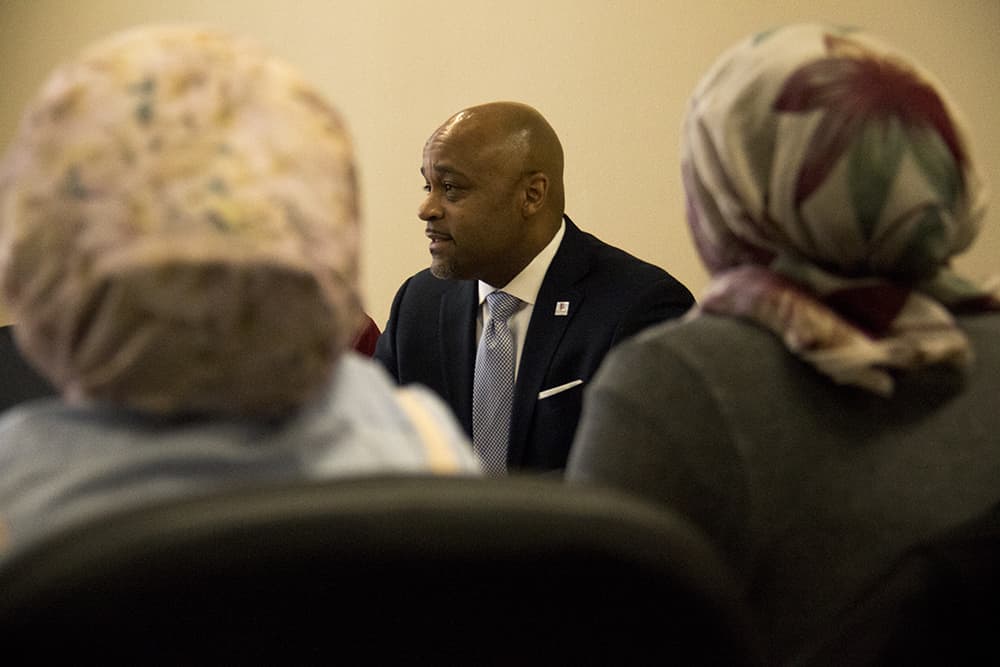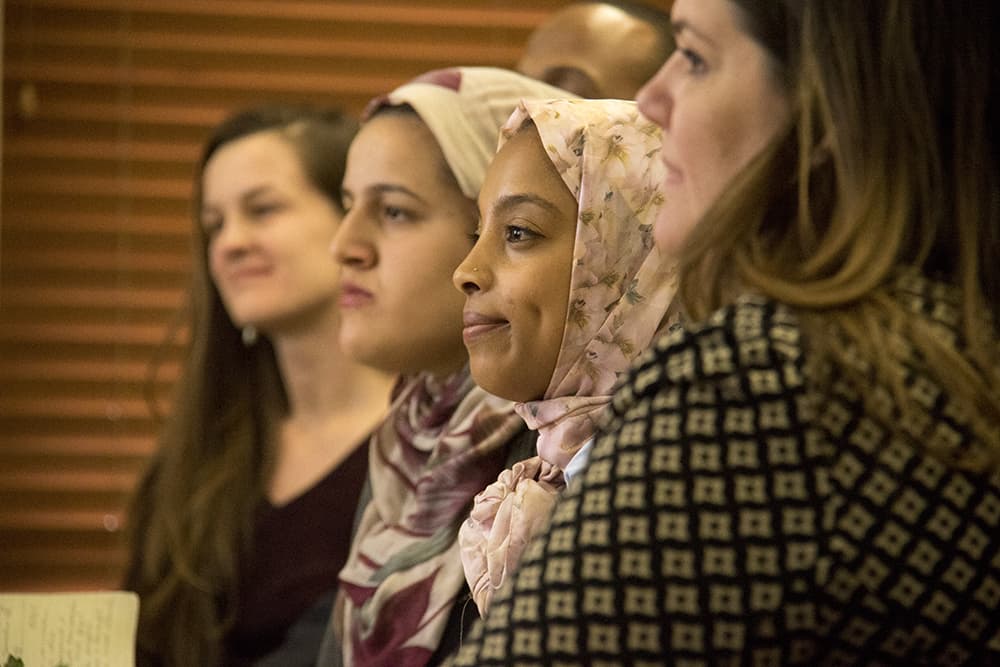
For Florian Ezui, President Donald Trump's actions on immigration bring up old fears and revive old traumas.
"I lived in a dictatorship country," said Ezui, a native of Togo in West Africa. "For the first time, there are things where even with all my education, I think, 'That could happen.' ... We have seen this before, where everything looks peaceful, but in that city people do not feel peaceful. Where you are going, you want to make sure you have your papers with you, and when you do not have it, you may not come back home."
Members of Denver's Immigrant and Refugee Commission told Mayor Michael Hancock on Friday that fear is intense and widespread in their communities, regardless of immigration status. Watching green card holders be turned away at U.S. airports, they wonder who will be targeted next. They wanted to know what the city can do -- and what it will do.
Hancock and the director of his Office on Immigrant and Refugee Affairs, Jamie Torres, said city officials, attorneys and partners in the community are working hard to figure that out.
Torres said her office has typically focused on community outreach, civic engagement and advocacy.
"That's not going to be enough to tackle the issues we heard in this room," Torres said after the meeting. "We have to be thinking beyond that in terms of: What are legal protections, what are policies that can be pursued? It's a lot of new and ongoing conversations with the City Attorney's Office, with our direct service providers, and really thinking about new things that people are bringing to the table and what are our priorities for standing behind our words and making sure our immigrants feel protected."
Hancock said the city's efforts start with listening to immigrant communities and hearing their concerns. There will be a community meeting to talk about these issues Feb. 11 -- details are still being finalized -- and Denver police are working with members of the Muslim community to make sure mosques and community centers are protected without making members feel profiled or monitored. Hancock said Denver police will not start enforcing immigration law or asking about status, and he said he doesn't want people to be afraid to report crimes or share information.
"We're not going to let Washington or anyone tear this city apart," he said. "We work hard to maintain what we truly believe are our values to be a welcoming and opening city. We recognize the important role immigrants play in our community."

But Maricruz Herrera pressed Hancock on why, on the day Trump signed an executive order to withhold all federal funding -- some $175 million in the case of Denver -- from sanctuary cities, the mayor said Denver is not a sanctuary city.
"For us, we feel a lot of fear. If you stand up for us and say we are a sanctuary city, you give us the opportunity to be more at peace," she said. "It's just one word. I know there are political things that I don't know about. ... I feel that you stand back and do not confront the community. We need you to stand up."
There is no legal definition of a sanctuary city, and Denver has not formally declared itself a sanctuary city. Denver does not hold people who would otherwise be free to go just so that immigration enforcement can get a warrant -- and it is just this practice of "declined detainers" that the executive order seeks to change. Hancock said he does not believe the executive order applies to Denver because federal courts have found that immigration detainers are voluntary, and it is unconstitutional to hold people without a warrant.
What Denver's doing right now:
- The City Attorney's Office is doing a close study of all the executive orders to make sure attorneys understand all the implications.
- The City Attorney's Office is also working with a group of outside experts to see what the city can do within the law to protect immigrant residents.
- Officials are studying what resources the city already puts into helping immigrants and where gaps might exist, especially in the current environment. Denver is putting together resource guides with accurate information about immigration issues and looking to crack down on "notario fraud" or the illegal practice of immigration law, which could flourish in this atmosphere of fear. Other cities have set up legal defense funds and hotlines.
- The city wants to make sure there is space and access at Denver International Airport for immigration attorneys to be present and create an expedited process for protest permits.
What commission members want to see:
- More outreach and reassurances in the many languages spoken by Denver's immigrants.
- The presence of top city officials at community meetings.
- Expansion of the Office on Immigrant and Refugee Affairs, including having an immigration attorney on staff.
- Money for a legal defense fund.
- Education for the community about rights and resources for immigrants.
- Education for the community about different types of immigrants and the processes they go through.
- Vocal refutation of negative stereotypes about immigrants and refugees.
Nadeen Ibrahim asked what the city will do to protect "Dreamers" who participated in the Deferred Action for Childhood Arrivals program. These people came to the United States illegally as children and voluntarily provided all their information to the government in exchange for permission to work and go to school and put off deportation indefinitely. But if the program is rescinded, these people could be particularly vulnerable.
Hancock acknowledged that there will be limits to what cities can do.
"It's one thing to say we we care greatly for and want to protect our Dreamers," he said. "It is another thing to have the legal means with which to do that. That's what our attorneys are researching right now."
Hancock recently participated in a conference call with some 40 mayors of U.S. cities.
"There is a consensus of mayors to do what we can to prepare ourselves for one, building a relationship with the White House, but two, also letting the White House know very clearly where we stand," he said. "We all pretty much stand on the same platform in that our cities are welcoming, we are open, we are inclusive. As mayors, we will do what we can to protect our residents."











